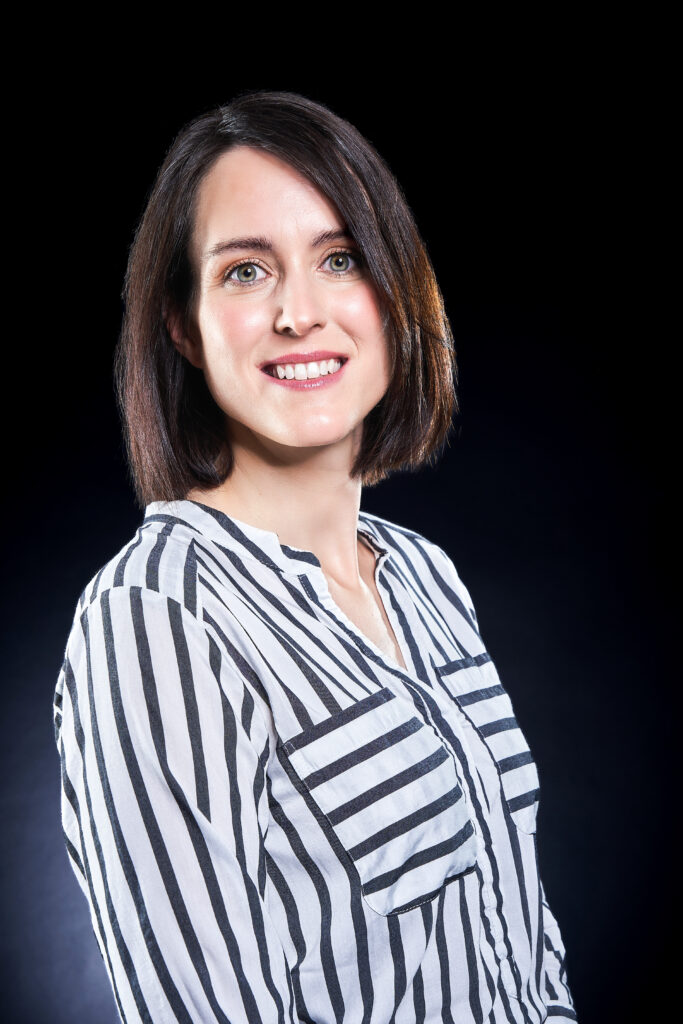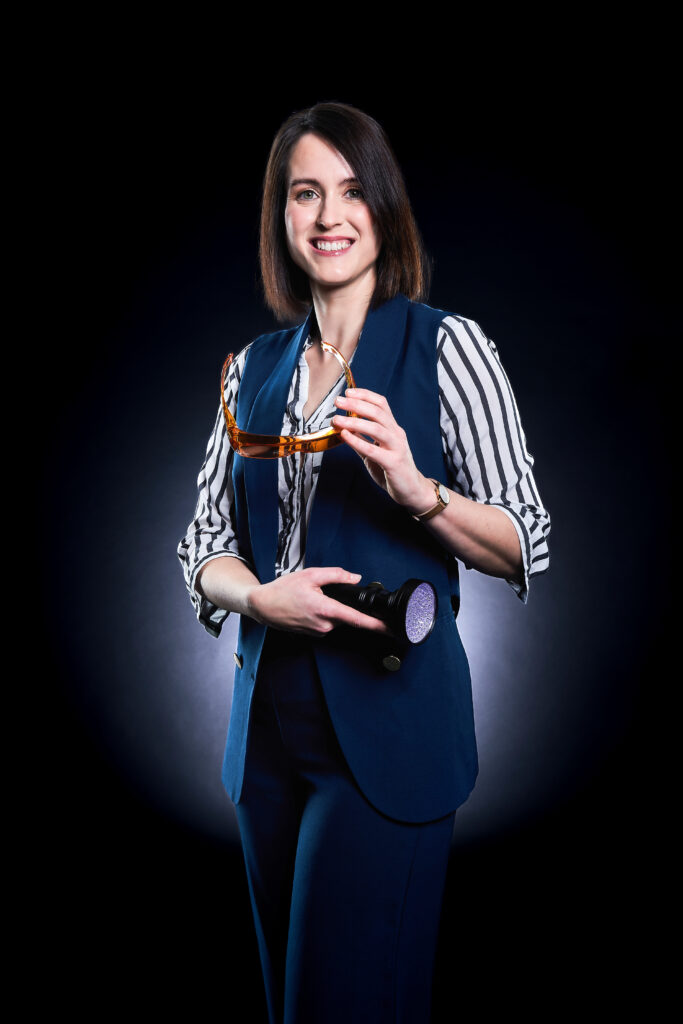Searching for answers in DNA – a portrait of Jana Naue

Jana Naue is quite the crime solver – a bit like on CSI: Den Tätern auf der Spur. This was one of the reasons she was accepted into the elite program for postdocs of the Baden-Württemberg Foundation, which is committed to a vibrant Baden-Württemberg worth living in. Jana Naue, on the other hand, is more concerned with the opposite. Her research supports the police and public prosecutors in their work, using forensic genetics and, in the future, epigenetics. When we meet, I naturally ask her what exactly forensic epigenetics is and how it helps in solving crimes. Contrary to my expectations, she doesn’t explain it using biological terminology, but as follows: „Epigenetics can be compared to playing a piece of music on a piano.“
DNA, just like musical notes, can be interpreted differently by the cell. How the piece of music is played in the cells depends on the circumstances and possibly on external influences. Forensic epigenetics investigates these DNA regulators, which can be used to determine body fluids or estimate a person’s age, to name a few use cases. „Forensic“ means simply that these findings are to be used for criminalistic purposes and that the research questions arise from criminal cases. The DNA department therefore carries out analyses that can lead to the identification of perpetrators in police investigations.
In the laboratories she shows me, DNA samples can be analyzed and compared with a second sample. As a guest, I am only allowed to look into these sensitive laboratories from the outside and not simply enter them, as the DNA could otherwise be contaminated. Nevertheless, it becomes clear what Jana Naue always mentions first to her students: it’s not quite like CSI – here, they have bright light in the labs, protect the samples with protective clothing and nobody just struts in there with their hair down and wearing high heels. We also tend not to see the crime scene, instead it comes to us in the form of collected traces. Even if it seems less ‚action‘ rich at first, „the direct connection between science and application is what makes the work in forensic molecular biology at the Institute of Forensic Medicine so exciting, even if it takes place in the laboratory.“
The University and the University Medical Center Freiburg offer the right environment for this. With just a glance at her CV, you can see that Jana Naue and the University of Freiburg have a lengthy history. She did her degree here, completed her doctorate and, after a two-year detour to Amsterdam, returned to the Institute of Forensic Medicine as a postdoc. In 2020, she became deputy head of the laboratory and in 2022 head of the forensic epigenetics working group. In June 2023, she also completed her habilitation and thus received the venia legendi, the teaching license as a private lecturer. According to Jana Naue, this impressive career path was possible primarily due to the freedom that the University Medical Center and especially the Institute offered her.

In addition to the combination of research and direct application, Jana Naue particularly enjoys her dual role of researcher and lecturer. She also sees working with students and accompanying them on their path into the natural and life sciences as a personal gain. It is particularly important to her to encourage critical thinking in young budding researchers and to discover new things together. „The occasionally failed experiment is part of researching. But the joy is all the greater when it does work,“ she explains. Another thing Jana Naue appreciates so much about being a scientist is the multi- and interdisciplinary collaboration with other faculties and universities. „Collaborations between research institutions are exciting and profitable because the common goal is to generate new knowledge.“
Ultimately, however, it is the meaningful use of this knowledge that has led Jana to forensic (epi)genetics and to the university. Findings in this area can, through the University Medical Center, help the legal system to identify the right perpetrators – and thus help to fight crime!
Portrait by Leandra Rudolph
Leandra Rudolph is studying Liberal Arts and Sciences with a major in Governance at the University of Freiburg. As an aspiring ’something-with-media-and-politics‘, she has just completed an internship at taz and is now starting her Bachelor’s thesis. In her free time, she pursues classical student pastimes such as eating an ice cream and taking long breaks in the shared kitchen.